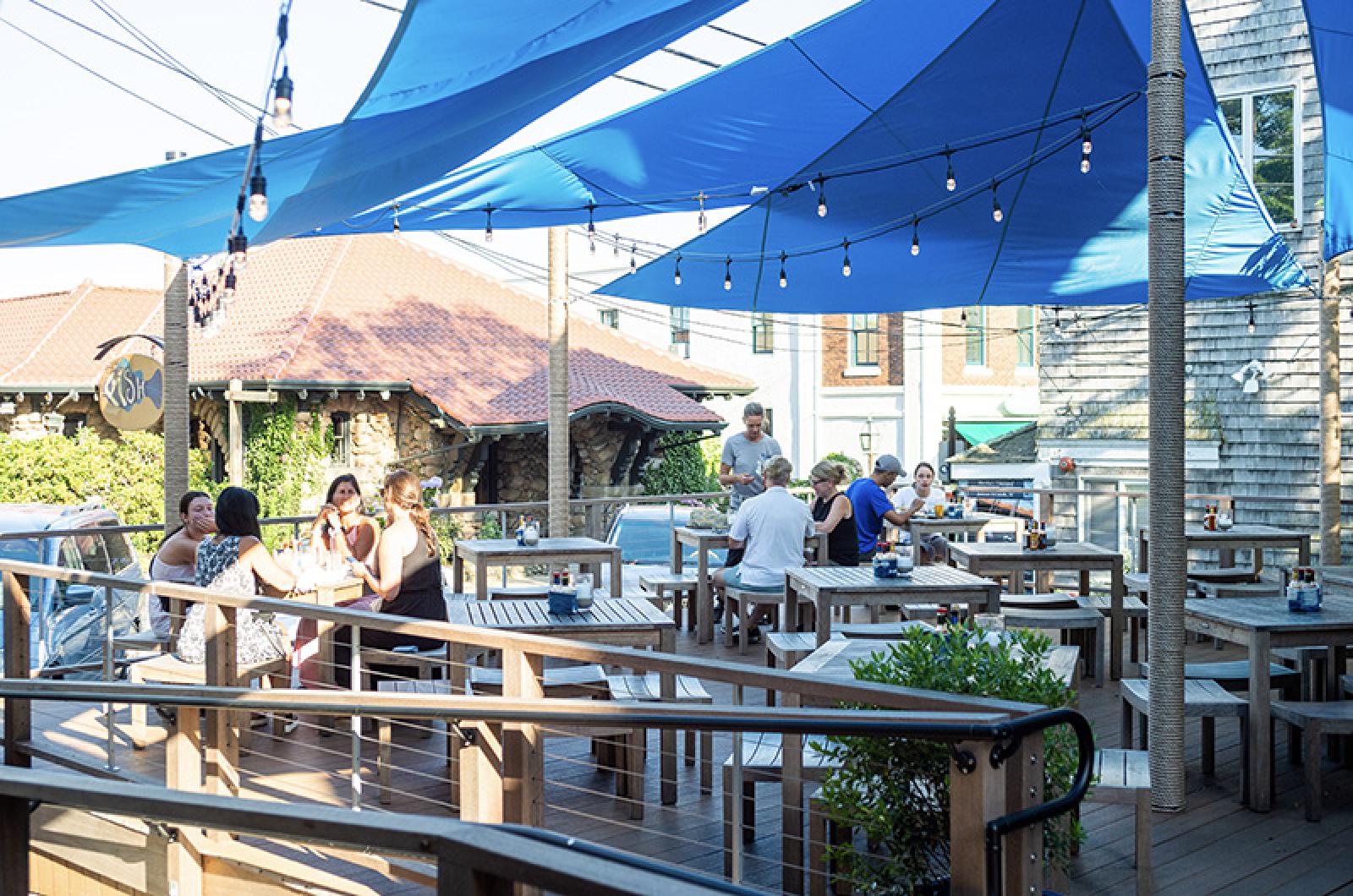Tisbury voters are getting something extra in their ballots for the midterm election in November: a yes/no question on whether restaurants with liquor licenses may legally serve alcohol without requiring the purchase of a meal.
A yes vote authorizes the select board to convert existing licenses for the sale of alcoholic beverages for on-premises consumption, currently permitted with meals only, to licenses that no longer require a food purchase to serve wine, beer and liquor.
If the measure passes, it will be the third time that Tisbury — historically a dry town, where restaurant patrons brought their own alcoholic beverages when dining out — has changed its liquor laws.
A 2008 ballot vote tied 690-690 on whether or not to allow restaurants to serve wine and malt beverages such as beer and ale. A hand recount found no change in the tally, dooming the measure.
But in 2009, Tisbury residents voted 881-747 to allow restaurants with at least 30 seats to serve malt beverages and wine along with food, and in 2017 voters sought and received state permission to convert existing licenses for beer and wine into all-alcohol licenses, retaining the 30-seat minimum and the meal requirement.
At the first town meeting of the pandemic, held under a tent at the Tisbury School on June 13, 2020, voters agreed to ask the state for permission to convert the existing licenses once again by dropping the meal requirement, but retaining the 30-seat minimum.
Sponsored by Cape and Islands representative Dylan Fernandes (D-Falmouth), the legislation wound its way through the house and senate before reaching Massachusetts Gov. Charlie Baker’s desk.
The town select board agreed Sept. 2 to place this question on the ballot, after Mr. Baker signed a legislative act on August 26.
“This special legislation was required because we have a special act for all alcohol that we issue licenses under,” town administrator John (Jay) Grande told select board members, who gathered in the Katherine Cornell Theatre above town hall.
Further conditions specified in Tisbury’s upcoming ballot measure include stipulations that alcohol may account for no more than 35 per cent of a restaurant’s gross sales and that alcohol service must end at 11 p.m., except with select board permission in the case of a special event.
A majority of votes is required for the measure to pass.
The ballot question, rather than a town meeting vote, is also required under state law, Mr. Grande said.
The current and previous legislative acts are linked from the town administrator’s page on the Tisbury website, under the Special Legislation tab: tisburyma.gov/town-administrator/pages/special-legislation.
A handful of Tisbury residents turned up for the Sept. 2 select board meeting to express their thoughts on the ballot measure.
“I don’t see it as any kind of a positive,” said Joanne Connolly, who described herself as a 50-year Vineyard Haven resident.
Laura Beebe raised the specter of thirsty motorists in the Steamship Authority standby lines.
“Would they go over there and, y’know, pop a few?” Ms. Beebe asked.
“I’m sorry, we don’t have the ability to answer that question,” board chair Roy Cutrer said.
Resident Mac Schilcher, whose family has been in the restaurant and catering business for multiple generations, spoke up in favor of increasing town revenue from alcohol sales by going food-optional.
“This town has needs to pay,” Mr. Schilcher said.
The Tisbury select board also met briefly August 30 at the senior center on Pine Tree road to sign the warrant for the Sept. 20 special town meeting, to be held at 7 p.m. in the Martha’s Vineyard Performing Arts Center in Oak Bluffs.
The warrant asks voters to approve nearly $26 million in additional borrowing for the Tisbury School renovation and addition, in addition to $55 million authorized last year.






Comments (3)
Comments
Comment policy »